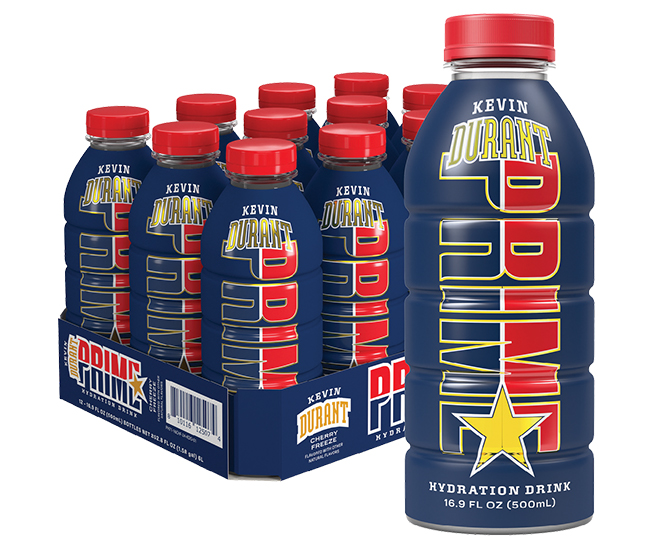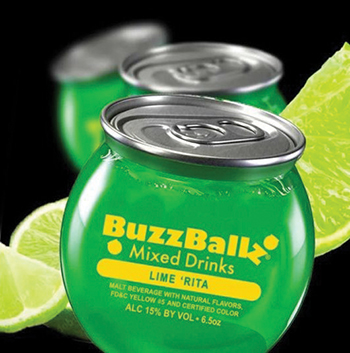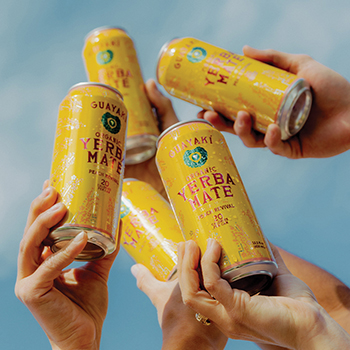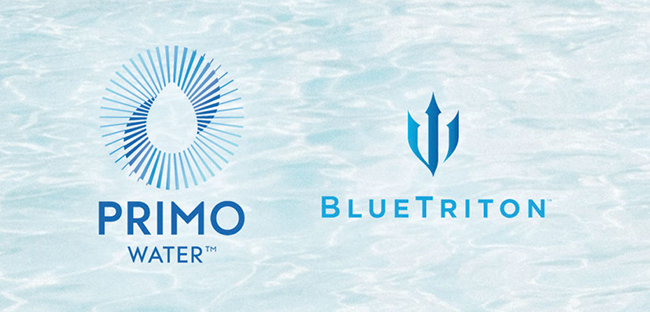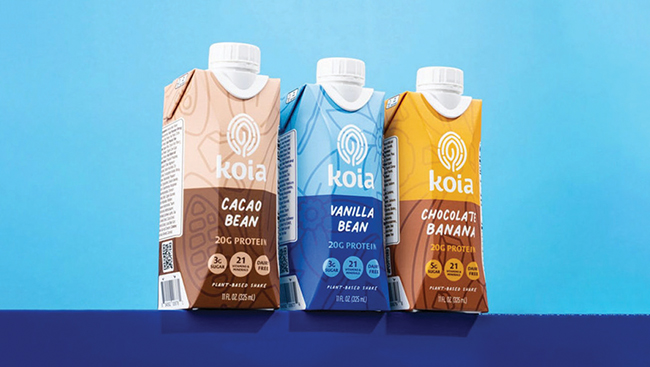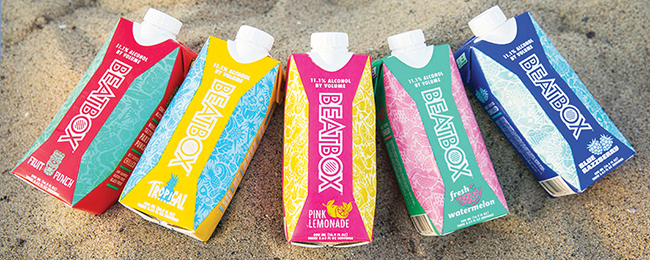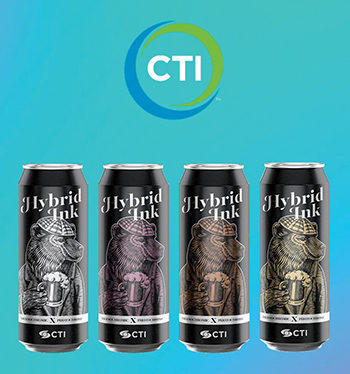Bevscape: The Latest Beverage Brand News
PRIME Violates Trademarks, Claims U.S. Olympic Committee
Logan Paul and KSI’s PRIME Hydration has caught the ire of the U.S. Olympic & Paralympic Committee (USOPC), which filed a lawsuit against the sports drink brand in July alleging it violated the committee’s trademarks on the packaging of its recent collaboration with NBA star and Team USA member Kevin Durant.
Earlier in July, PRIME announced a limited time version of its Cherry Freeze flavor in partnership with Durant. Copy on the side of the bottle called out the NBA champion’s record as a three-time Olympic gold medalist, asking “What makes a true Olympian repping Team USA?” and concludes that “when KD steps on the court, he’s going for gold.”
While that text could appear innocuous to the average consumer, the USOPC is alleging that PRIME engaged in “deliberate and willful” violation of its trademarks, including rights to the terms “Olympic,” “Olympian,” “Team USA” and “Going for Gold.” The complaint also claims that PRIME also called the LTO the “Kevin Durant Olympic Prime Drink” in marketing copy and social media posts. Despite decease and desist claims by the USOPC, the complaint states that the brand failed to remove all offending social media posts and was still in violation of its marks.
Further complicating matters is that the USOPC has an exclusive partnership with The Coca-Cola Company for use of Olympics related branding in beverage marketing.
“By its conduct, Prime Hydration has caused the USOPC damage and irreparable injury for which it has no adequate remedy at law, and Prime Hydration will continue to do so unless restrained and enjoined by this Court from further infringing the USOPC’s marks and confusing the public,” the complaint states.
Currently, the LTO drink does not appear to be available for purchase on PRIME’s website and an Instagram post promoting it cited by the complaint is no longer viewable on the brand’s profile.
PRIME has recently embraced athlete and sports partnerships such as the Durant flavor, offering similar products in collaboration with stars like New York Yankees slugger Aaron Judge and with organizations like the WWE.
Congo Brands, operator of PRIME, did not immediately return a request for comment.
The lawsuit is the latest in a line of controversies surrounding the beverage brand, which has established itself as a serious challenger to top sports drinks brands such as Gatorade, BodyArmor and Powerade. In June, PRIME was subject to another trademark lawsuit, this one from Hi-Tech Pharmaceuticals, Inc. which alleged the brand was violating its trademark for the name “Prime Nutrition.”
The brand has also been subject to a number of class action lawsuits from consumers, including one filed in the United States District Court for the Southern District of New York taking aim at its energy drink line, alleging PRIME Energy cans contained more caffeine than advertised.
In recent months, NielsenIQ retail scanner data has suggested sales of PRIME are sliding: in the two-week period ending June 29, U.S. retail dollar sales for PRIME’s sports drink fell -29.7% to around $604.2 million while its energy drink line dropped -67.9% to around $100.8 million. However, that data does not include ecommerce and does not cover all product lines, such as powder sticks.
Playing Hardball: BuzzBallz Files Patent Infringement Lawsuit Against Beverage Ranch
BuzzBallz has made its spherical bottles an essential part of the brand – and it’s not eager to share.
The wine-, spirit- and malt-based cocktail brand filed a lawsuit against The Beverage Ranch, alleging the rival company copied its patented packaging for its new SlamZees line.
The complaint was filed in the U.S. District Court for the Western District of Texas on June 21, and centers on a U.S. Patent No. abbreviated as “the 955” patent, which was issued to BuzzBallz founder Merilee Kick in 2022 and pertains to the design of BuzzBallz’s unique containers. BuzzBallz claims that SlamZees, which also come in truncated, round, plastic containers, directly infringe on at least two claims of the BuzzBallz patent.
BuzzBallz was started in 2009 when founder Merilee Kick was a high school teacher, studying for her MBA. In the following decade, the brand has grown into a more than $1 billion company with distribution in all 50 states and in 27 countries. Spirits giant Sazerac announced plans in March to acquire BuzzBallz and its parent company Southern Champion’s ready-to-drink (RTD) portfolio.
According to the complaint, BuzzBallz sent a cease and desist letter to The Beverage Ranch in January after a member of The Beverage Ranch team promoted SlamZees on Instagram prior to the product being widely available. BuzzBallz reiterated the company’s stance in March with a second notice, meanwhile the Beverage Ranch moved forward selling SlamZees on a wider scale.
The new “party drinks” come from a Texas brand incubator co-founded by Rhett Keisler, the co-founder and former president of Texas-based Revolver Brewing, and Ryan Baird, previously co-founder and CEO of Houston’s Yellow Rose Distilling. The incubator’s portfolio also includes agave-wine Watertight Cocktails and wine-based honey cocktails Meridian Hive.
SlamZees’ launch was announced via press release in partnership with RNDC in May. At 15% ABV, the products are described as fulfilling “consumer demand for higher alcohol single serve options in nostalgic, fruity and decadent flavors.” Made in Dripping Springs, Texas, and described as uniquely resealable and stackable, the initial six flavors include Watermelon Kiwi, Sour Strawberry, Cherry Limeade, Cookies and Cream, Banana Pudding and Fruity Cereal.
BuzzBallz is asking the court to grant injunctive relief to stop The Beverage Ranch from manufacturing and selling any products that infringe on the patent, and is claiming damages. A summons was issued June 24 requiring The Beverage Ranch to respond in 21 days.
Guayaki’s C-Store Surge Continues With 7-Eleven, QuikTrip
While energy drinks as a category have been growing, much of those gains have been fueled by brands — Celsius, C4, Alani Nu, among others — with roots in sports nutrition. In contrast, several recent big-brand experiments in natural energy, such as Vita Coco’s Runa and Starbucks’ Baya Energy, have fizzled.
Guayakí has managed to buck that trend; despite over 20 years on the market, the yerba mate company’s approach has rarely felt as deliberate and coordinated as it does now. With sales momentum still rising and fresh leadership at the helm, the brand is chasing opportunities to diversify (and add to) its 45,000 total doors across the U.S. and Canada.
Why now? After 20-plus years of building the brand in natural grocery stores, Guayakí consumers began to demand greater availability, explained head of distribution Jared Riddle on a call in June. Efforts to expand ran up against the company’s ambitious plans to build The Yerba Mate Co., a national self-distribution system staffed by formerly incarcerated workers. That network still exists in California — it’s about 32% of the company’s total business, he said — but attempts to build broadly outside of its base at Whole Foods proved complicated.
In contrast, the brand’s current distribution strategy is more conventional, if no less ambitious. Nationwide, Guayakí has on-boarded over 130 distributorships in the last 16 months as it looks to plug gaps in grocery while dipping further into new channels as well.
The numbers reflect that shift: the natural channel was once 70% of the business, said Riddle, but is now around 17%, with convenience representing north of 40%; the vast majority of Guayakí’s 18,000 c-store footprint runs from Colorado to California. Nationwide, dollar sales growth in the channel is up 22% year-to-date, according to the brand.
“If you think about it from a day-part perspective, consumers are most likely to pop into a convenience store to get that lift that they need,” said Riddle. “Whether it’s in the morning or the afternoon, when they need that little lift, they know they can buy Guayakí there now.”
The company is responding by doubling-down on c-stores this summer. Guayakí’s drinks can now be found in over 3,500 7-Eleven locations nationwide, with Florida (900 stores), Texas, Utah, and Nevada all coming online. It’s also currently being tested at QuikTrip stores in Texas and Arizona, while ampm is taking the product into 1,000 locations across Arizona, Nevada and California.
Within the channel, Guayakí’s non-carbonated 15.5 oz. cans (150mg of caffeine each) are well-positioned for cold grab-and-go energy occasions across the day, but the drinks are still typically merchandised alongside teas, coming in at the higher end of the price spectrum at $3.29 each.
On the other end of the retailer spectrum, Costco has emerged as an increasingly active partner. Guayakí is now in all 200-plus stores in the big-box chain’s Northern California division, with a footprint in Southern California and potentially more stores in the Pacific Northwest on the way. One of its promotions landed the drinks a coveted spot on the first pallet as customers walked into stores.
Strong performances on-shelf have also earned Guayakí a tight relationship with Target in recent years; the brand outsold all but five other energy drinks at the chain in 2023, though it’s categorized as a tea, said Riddle. This year, Guayakí moved from 900 stores to all U.S. Target locations, and is currently in the midst of a nine-week end cap display program.
Even Walmart, which Riddle admits remains “not completely sure that their consumer aligns with our product,” has put Guayakí in 860 stores, up from 251 last year.
As for Guayakí’s consumers, Riddle said their top request is for more lower-calorie options. The brand responded with its first 20-calorie (2 grams of sugar) flavor, Peach Revival, last year, followed by Berry Lemonade this spring, which has already climbed to the company’s fourth most-popular SKU. Next up is a low-calorie variety pack set to launch within weeks in Costco’s NorCal division.
The moves come against the backdrop of leadership changes at the company, as former Harmless Harvest CEO Ben Mand joined in March. But the new boss isn’t under immediate pressure to produce results: as it approaches nearly 30 years in business, Guayakí holds 85% market share in RTD yerba mate, dwarfing newcomers like Yachak, Yerbae and Clean Cause. Its ability to stretch across tea and energy markets is also unique; Guayakí dollar sales growth is outperforming the energy category in core trade channels across all U.S. regions, per the company.
“I think first of all it’s important that the leadership and our distribution teams are all fully aligned against our mission and values,” Riddle said. “And one of the beautiful things is that with the most recent change in leadership we’re still hitting our goals that we set out last year. We have not deviated whatsoever.”
BlueTriton, Primo Water Merging to Form Publicly Traded Water Giant
The biggest name in bottled water is getting bigger.
In June, Primo Water Corporation and an affiliate of BlueTriton Brands announced the two water giants have entered a definitive agreement to merge, creating a new combined entity, effectively taking the largest manufacturer of bottled water in the U.S. public.
Shareholders in Primo, which is focused on bulk water and water dispensers, and owners of the Mountain Valley and Crystal Springs brands, will hold 43% of fully diluted shares in the combined entity, leaving BlueTriton’s shareholders with the remaining 57%. The company is expected to have combined net revenue of $6.5 billion for the 12-month period ending March 31 and will be dual headquartered in Tampa, Fla., and Stamford, Conn.
BlueTriton chairman Dean Metropolous will serve as non-executive chairman of the business, while Primo chief executive Robbert Rietbroek will be the CEO. Primo CFO David Hass and BlueTriton COO Rob Austin will also continue in their roles at the new entity.
“The increased presence, diversified product portfolio, focus on free cash flow generation, strong balance sheet and estimated cost synergies provide the foundation for long-term value creation for our shareholders,” Metropoulos said in a statement.
BlueTriton initially formed in 2021 following the $4.3 billion acquisition of the former Nestlé Waters North America bottled water portfolio (plus ReadyRefresh) by One Rock Capital Partners and investment firm Metropoulos & Co. According to NielsenIQ, U.S. retail dollar sales of BlueTriton’s bottled water portfolio were up 1.9% to over $4.2 billion in the 52-weeks ending June 1 – trailing only the $6.4 billion private label segment.
According to Axios, publicly-traded Primo had a $3.6 billion market cap prior to the announcement of the merger, and had nearly doubled in value from this point in 2023.
While ReadyRefresh has previously placed BlueTriton in the water jug business, Primo is poised to fully round out its capabilities in the dispenser category. Meanwhile, Primo has made reducing single-use bottle waste a key piece of its messaging, but BlueTriton has likewise sought to emphasize sustainability initiatives – launching a recyclable aluminum bottled line at Expo West this year, joining plastic-packed portfolio counterparts across all of BlueTriton’s core brands.
Koia Extends Into Shelf-Stable, Bulks Up Into Multiserve
Koia has built its reputation in the cold box, but in order to achieve its next stage of growth the company is breaking onto the dry shelf with June’s launch of Koia Nutrition Shakes, its first shelf-stable offering.
Though similar in some respects to the brand’s core, refrigerated protein shake line, the Nutrition Shakes come in 11 oz. Tetra Pak cartons and feature 20 grams of protein, 3 grams of sugar and 21 vitamins and minerals per serving, as opposed to the core’s 12 oz. plastic bottles with 18 grams of protein and 4 grams of sugar. The Nutrition Shakes come in three flavors – Vanilla Bean, Cacao Bean and Chocolate Banana – and are sold only in multipacks for $44.99 per 12-pack.
The launch marks Koia’s first significant push into ecommerce, with the shakes now available on Amazon and direct-to-consumer, as well as an added multipack option for consumers, which CEO Chris Hunter said has been a long time coming for the eight-year-old beverage brand.
Due to the complicated logistics and high costs of shipping cold chain products online, Koia’s ecommerce channel business had previously been limited to platforms like Instacart and Amazon Fresh that could facilitate immediate delivery, but it lacked a shipping option like standard Amazon. While the company did temporarily offer direct-to-consumer for its refrigerated shakes during the pandemic, Hunter said it was an unprofitable endeavor and the option was ultimately discontinued.
Despite this, the brand was netting roughly 6,000 searches on Amazon per month, with no option to generate sell-through, and Hunter said his team would often discover resellers offering unauthorized products online at a markup.
The company launched the shakes on Amazon a week prior to its official announcement on June 6. Hunter said that even without promotion there were “immediate” sales and after an email blast and social media campaign began those sales jumped 10x.
Koia’s core protein shake line is sold primarily as a single-serve product in grab-and-go coolers, but the Nutrition Shakes also add a new multipack option for brand loyalists. Hunter said around 50% of Koia’s consumers tend to purchase four or more bottles per trip, indicating demand from daily users.
That insight is also driving the brand’s next iteration: a 32 oz. multiserve bottle.
Koia initially tested the larger format around 18 months ago in Sprouts stores, Hunter said, but the business was in the process of transitioning to a new company-owned manufacturing facility and didn’t have the capability at the time to produce a full run of 32 oz. bottles. That line will be launching this year in Sprouts with Vanilla Bean and Cacao Bean flavors – the top two sellers for the core Koia shakes.
While protein shakes tend to be associated with single-serve packaging with use occasions like post-workout and meal replacement, Hunter said Koia has found that many of its consumers are using the drinks as an ingredient as well – from mixing with coffee for a caffeine kick to using it as a base for smoothies, puddings and overnight oats.
The mix of Koia with coffee has been bolstered by the brand’s launch into Starbucks stores nationwide earlier this year, and by collaborations with the cafe chain on social media marketing built around a rising “protein coffee” trend on platforms such as TikTok.
Koia previously launched an “enhanced” coffee line in 2019, but that offering, which Hunter characterized as “always in a long tail from a velocity perspective,” failed to catch on and was later discontinued. However, around nine months ago he said sales of the brand’s Cold Brew flavor for its refrigerated shakes rose to become its number four best-selling SKU. There’s no immediate plans to relaunch that line, but Hunter said it is an option the company may consider in the future.
The Starbucks expansion has also helped Koia expand in foodservice and, including those accounts, Hunter said the brand is now sold in around 30,000 doors nationwide across all channels.
The brand has also grown its footprint in convenience in chains like 7-Eleven and Wawa, the latter of which recently added its top four flavors.
Hunter said Koia surpassed $100 million in sales last year and is now on a “clear path” to double that. According to Circana, annual U.S. retail dollar sales of Koia’s refrigerated shakes in MULO and c-store were up 12.4% to around $35.2 million in the 52-week period ending April 21, 2024.
With Nutrition Shakes and a multiserve option now underway, Hunter said that looking forward the company has several more innovations it’s looking to launch by the end of the year, including new additions that go beyond just new flavors.
Flow Water, BeatBox Extend Manufacturing Deal
Flow Water and BeatBox Beverages are extending their manufacturing agreement for a further year while raising its high minimum total revenue by nearly $100 million, the companies announced in August.
The deal is being financed by BeatBox’s commitment to purchase a $2 million convertible note by October 31 secured against the assets of Flow, a publicly traded company on the Toronto Stock Exchange.
The upgraded projections – with minimum total revenue increasing from $115 million to $213 million over the five-year term – will require the addition of two production lines at Flow’s Aurora, Ontario facility “to satisfy the increased demand for co-manufacturing from BeatBox, in addition to other co-manufacturing agreements recently announced and to accommodate anticipated growth in the Flow brand.”
Though the deal was announced last November, BeatBox did not officially begin commercial production at the Aurora facility until June, due to the installation of a fourth TetraPak line and additional equipment to accommodate the increased volume.
For Flow, the move reflects its decision to take the facility off the market. Flow founder/CEO Nicholas Reichenbach had previously spoken about how co-packing deals with brands such as Joyburst and Biosteel were intended to boost the plant’s value to prospective buyers.
“We are thrilled to be expanding our relationship with BeatBox by helping them scale in a sustainable way,” said Reichenbach in a press release. “Our co-pack operation has achieved a number of milestones in the past year, which include welcoming new partners, adding a fourth production line and upgrading the Aurora production facility to produce alcoholic beverages.”
BeatBox sells its ready-to-drink boozy punch (11.1% ABV) in 16.9 oz./500 ml TetraPak cartons in more than 83,000 stores in North America.
“As we continue our industry-leading growth, we are excited to expand our partnership with Flow, securing our capacity needs well into the future, and doing so with a partner that shares our commitment to environmental and social responsibility,” said BeatBox CEO Justin Fenchel. “Our mission is to make the world more fun while doing right by our people and the planet, and this milestone is a significant step towards achieving that.”
The Guys Making PRIME Glow: Label Tech Player CTI Scaling Under New Leadership
For 31 years, Colorado-based Chromatic Technologies Inc. (CTI) has been a leader in beverage packaging innovation, pioneering temperature-sensitive thermochromic inks for products like Coors Light’s famous color-changing cans. Now, under new leadership for the first time since its founding in 1993, the firm is working to scale operations and keep its innovation pipeline full.
CTI was founded by entrepreneur Lyle Small, who served as the company’s president until stepping down from day-to-day duties in January to focus on Lahjavida, a research firm he started in 2018 to study cancer treatments. That month, Daniel Wachter, who joined CTI as Chief Commercial Officer in 2020, was named its CEO.
Soon after, in April, the company hired former 3D Systems Corporation VP Edwin Hortelano as its Chief Technology Officer, and in May it announced an investment from Molson Coors-aligned CPG incubator L.A. Libations.
Speaking with BevNET, CTI’s chief marketing officer Maria Del Rio said that although the company has undergone a significant shift in leadership this year, its growth trajectory has remained unchanged as the company looks to extend its sales both in and outside of food and beverage with upcoming product launches, while targeting expansion in sectors such as healthcare, industrial and security and anticounterfeiting.
Despite three decades in business CTI is still considered a startup with under 40 employees, Del Rio said, but the company has customers in 55 countries including high profile partnerships with conglomerates like Molson Coors, Constellation Brands, General Mills, and The Coca-Cola Company, as well as younger rising businesses like Congo Brands. She said CTI has experienced recent success in developing the glow-in-the-dark bottles for Congo’s breakout brand PRIME.
However, the company has no restrictions for the size of the businesses it works with, she noted, and services entrepreneurial startups alongside industry giants.
CTI’s flagship product is thermochromic ink, which changes color when chilled or heated for both aesthetic appeal and for practical purposes: letting consumers know when a can of beer has reached the right temperature for drinking, for example, or when a hot cup of coffee has cooled to room temp.
Other inks offered by the company include glow-in-the-dark and photochromic – which changes color in sunlight.
“We always try to have a reason,” Del Rio said. “We really analyze what is the consumer journey, so that we make sure that when we put our ink somewhere in that artwork or in that packaging it brings either an emotional connection and memorability … or it improves the decision that the consumer wants to make.”
Del Rio called CTI’s inks an “interactive” experience for consumers, intended to further engage them in the products they are using. In recent years, social media has given the business a big boost as well, as unique designs can easily draw more attention on platforms like Instagram and TikTok.
“Brands like PRIME are doing an amazing marketing job with that, as they not only use celebrities, but they are dependent on social media so much and they get a lot of earned media … because consumers are constantly engaging with the brand,” she said. “[They are] showing what they can do with interactive inks and they are targeting Generation Z, and they are very successful with Generation Z, which is hard nowadays.”
But CTI has also developed more practical innovations, such as high-pressure processing (HPP) ink which can let manufacturers know whether a bottle has been processed or not.
CTI’s latest innovation, Hybrid Ink, blends the thermochromic and photochromic technologies to create labels that change colors based on both temperature and sunlight, with four different color variations (indoors and warm, in sunlight and cold, etc.)
“It’s really cool technology,” she said. “Imagine the amount of marketing concepts that can accompany that.”
With scaling now the goal for the foreseeable future, Del Rio said CTI is investing in automating more of its processes and embracing A.I. behind the scenes to develop better color palettes, as well as growing its commercial and R&D teams. The company is also working to improve its sustainability initiatives, she added, looking to secure third party certifications to ensure its labels are washable and non-pollutants.
“We are making sure that we are expanding the current technologies, including Hybrid, as much as we can,” she said.


Receive your free magazine!
Join thousands of other food and beverage professionals who utilize BevNET Magazine to stay up-to-date on current trends and news within the food and beverage world.
Receive your free copy of the magazine 6x per year in digital or print and utilize insights on consumer behavior, brand growth, category volume, and trend forecasting.
Subscribe